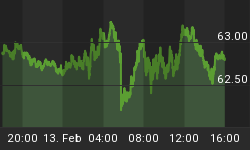Why Read: Because, once again, unregulated derivatives might well be the ultimate 'huge log (not straw) that breaks the camel's back'.
Featured Articles: A recent article takes the form of an infographic with accompanying text that discusses derivatives markets and quantum of derivatives allegedly held by the world's nine biggest banks. The article suggests:
• those nine banks collectively hold derivatives balances of U.S$229 trillion, over three times world GDP - currently estimated at about U.S.$73 trillion;
• four of those banks: JP Morgan Chase (U.S.$70 trillion), Citibank (U.S.$52 trillion), Bank of America (U.S.$50 trillion), and Goldman Sachs (U.S.$44 trillion) collectively account for over U.S.$216 trillion, or about 95% of the total held by the nine banks; and,
• in passing, note how commonplace it has become for mainstream media to refer to firms such as JP Morgan Chase and Goldman Sachs as 'banks'. By definition, a bank is a financial intermediary that accepts and lends deposits, directly or through capital markets. Technically, in part of its operations the JP Morgan Chases and Goldman Sachs of this world do that. However, as a practical matter these types of businesses that were broadly referred to a 'stock brokers' not so long ago are not banks in the sense the average person on Main Street thinks about their corner bank and local bank manager.
A second article reports that Paul Wilmott, who the article claims to be a 'derivatives expert', estimated last year that the U.S.$ value of total derivatives outstanding then was in the order of U.S.$1,200 trillion. Other estimates made in the past 12 months have pegged that amount at between U.S.$600 trillion and over U.S.$1,500 trillion. Presumably whatever the amount was in 2011, it is larger today.
Commentary: The unregulated derivatives markets have been mentioned many times in these commentaries over the past few months. Important points to consider:
• not all derivatives are 'created equal' from a risk point of view. For example, some of the derivatives believed to be at most risk are the 'credit swap derivatives' related to some of the developed country Sovereign Debt issues. However, as evidenced from the foregoing, few people (if any) have a 'real handle' on the U.S.$ value of unregulated derivatives outstanding - or importantly, the real financial and contagion risks that attach to them; and,
• the four banks referenced are not only 'too big to fail'. At this point if something goes sideways in the derivatives market, any one of those banks viewed separately may turn 180 degrees and prove to be 'too big to save'. Not a happy thought to begin one's week.
The second article, published by Washington's Blog on May 18, 2012, is worth reading, and you ought to do that.
Derivatives: The Unregulated Global Casino for Banks
Source: Demonocracy Blog, June 10, 2012
Reading time: 4 minutes, thinking time much longer
Also read:
Top Derivatives Expert Estimates Size of the Global Derivatives Market at $1,200 Trillion Dollars ... 20 Times Larger than the Global Economy
Source: Washington's Blog, May 18, 2012
Reading time: 4 minutes, thinking time much longer
















